E SSENTIAL M IND T RAINING

E SSENTIAL M IND T RAINING
Tibetan Wisdom for Daily Life

Translated, edited, and introduced by
Thupten Jinpa

W ISDOM P UBLICATIONS B OSTON
Wisdom Publications, Inc.
199 Elm Street
Somerville, MA 02144 USA
www.wisdompubs.org
2011 The Institute of Tibetan Classics
All rights reserved.
No part of this book may be reproduced in any form or by any means, electronic or mechanical, including photography, recording, or by any information storage or retrieval system or technologies now known or later developed, without permission in writing from the publisher.
Library of Congress Cataloging-in-Publication Data
Essential mind training/translated, edited, and introduced by Thupten Jinpa.1st ed.
p. cm.
Includes bibliographical references and index.
ISBN 0-86171-263-3 (pbk. : alk. paper)
1. Blo-sbyo. I. Thupten Jinpa.
BQ7805.E87 2011
294.3442dc23
2011022683
ISBN 9780861712632
eBook ISBN 9780861717149
15 14 13 12 11
5 4 3 2 1
Cover design by Phil Pascuzzo. Interior design by Gopa&Ted2. Set in Diacritical Garamond Pro 10.75/12.7.
Wisdom Publications books are printed on acid-free paper and meet the guidelines for permanence and durability set by the Council of Library Resources.
 This book was produced with environmental mindfulness. We have elected to print this title on 30% PCW recycled paper. As a result, we have saved the following resources: 25 trees, 10 million BTUs of energy, 2,496 lbs. of greenhouse gases, 11,258 gallons of water, and 713 lbs. of solid waste. For more information, please visit our website, www.wisdompubs.org. This paper is also FSC certified. For more information, please visit www.fscus.org.
This book was produced with environmental mindfulness. We have elected to print this title on 30% PCW recycled paper. As a result, we have saved the following resources: 25 trees, 10 million BTUs of energy, 2,496 lbs. of greenhouse gases, 11,258 gallons of water, and 713 lbs. of solid waste. For more information, please visit our website, www.wisdompubs.org. This paper is also FSC certified. For more information, please visit www.fscus.org.
Publishers Acknowledgment
T HE PUBLISHER gratefully acknowledges the generous help of the Hershey Family Foundation in sponsoring the publication of this book.
Contents
1. Bodhisattvas Jewel Garland
Atia
2. Root Lines of Mahayana Mind Training
Attributed to Atia
3. Seven-Point Mind Training
Chekawa Yesh Dorj
4. A Commentary on the Seven-Point Mind Training
S Chilbu Chkyi Gyaltsen
5. Eight Verses on Mind Training
Langri Thangpa
6. A Commentary on Eight Verses on Mind Training
Chekawa Yesh Dorj
7. Leveling Out All Conceptions
Attributed to Serlingpa
8. A Commentary on Leveling Out All Conceptions
Attributed to Atia
9. Wheel of Sharp Weapons
Attributed to Dharmarakita
10. Melodies of an Adamantine Song: A Chanting Meditation on Mind Training
Attributed to Maitryogi
17. Mind Training in a Single Session
Chim Namkha Drak
18. Glorious Virvapas Mind Training
Lo Lotswa
E SSENTIAL M IND T RAINING is the first publication in a new series called Tibetan Classics, which presents accessible soft-cover editions of translations of seminal Tibetan Buddhist works excerpted from the larger, hardcover volumes of The Library of Tibetan Classics. The original volume from which this particular anthology is drawn is Mind Training: The Great Collection, which I had the privilege to translate into English. Mind training, or lojong, is a method for transforming our habitual self-focus into a more compassionate and altruistic way of life, and it gives me great joy to be able to help present this cherished practice to a wider audience.
This selection of eighteen essential texts of the mind training tradition is accompanied by an essay in the form of an introduction, short explanations for each section of the book, explanatory endnotes, as well a glossary to assist the reader with key terms. All of these seek to provide useful contextabout authorship, central themes, and historical backgroundto allow the reader to engage with the texts in a deeper and more meaningful way.
I would like to express my deep gratitude, first and foremost, to my two teachers, His Holiness the Dalai Lama, for being such a shining examplar of the Tibetan tradition, and Kyabj Zem Rinpoch, for embodying the spirit of Tibetan mind training teachings and introducing me to its wonderful world. My heartfelt thanks also go out to Barry J. Hershey, Connie Hershey, and the Hershey Family Foundation, whose support enabled me to undertake the translation of the texts in this volume. I also want to thank Pierre and Pamela Omidyar, who, through a special grant, allowed me to develop this particular volume for a general readership.
Let me also take this opportunity to offer profound thanks to Nita Ing and the Ing Foundation and Eric Colombel and the Tsadra Foundation for their ongoing support of translating multiple volumes from The Library of Tibetan Classics. I would also like to thank David Kittelstrom, our longtime editor at Wisdom Publications on the classics series, whose incisive editing always makes my English look better than it actually is; Tim McNeill and his team at Wisdom Publications, for their dedication to excellence; and last but not least my wife Sophie Boyer Langri, for her unwavering support and patience in the face of my never-ending work related to classical Tibetan culture.
Thupten Jinpa
Montreal, 2011
W ITHIN THE VAST body of Tibetan spiritual literature, one genre stands out for its inspirational power, universality, and down-to-earth practicality, qualities that have made these teachings dear to the Tibetan people for generations. I am referring to a collection of texts and their associated contemplative practices known simply as lojong, or mind training, which first appeared in the land of snows almost a millennium ago. At its heart the Tibetan mind training teachings represent a profound celebration of the spiritual ideal of genuine altruism, a deeply felt compassion for all beings and a dedication to serve their welfare. This is an ideal shared across many of worlds great spiritual and humanistic traditions. By the twelfth century lojong had become a most cherished spiritual heritage on the vast Tibetan plateau, with attendant myths and legends associated with its origin and development.
Today, as interest in Tibetan spiritual teaching and insights grows worldwide, often its the mind training teachings that are most shared with the larger world by Tibetan teachers. I vividly remember the beautiful morning of August 15, 1999, when nearly a hundred thousand people from all walks of life gathered in New Yorks Central Park to listen to His Holiness the Dalai Lamas exposition of Eight Verses on Mind Training. As on many of the Dalai Lamas trips, on that day I had the privilege to sit beside him as his official translator, and on this occasion, the beauty and simplicity of these eight short verses brought a Three years later the Dalai Lama returned once again to Central Park, and that time he chose to teach Atias Bodhisattvas Jewel Garland to a gathering whose size exceeded even the previous meeting. Both of these seminal mind training texts are featured in the present volume.
In my own life, I have been fortunate to be exposed to the mind training teachings from an early age and have, for more than three decades now, recited the Tibetan teacher Langri Thangpas
Next page

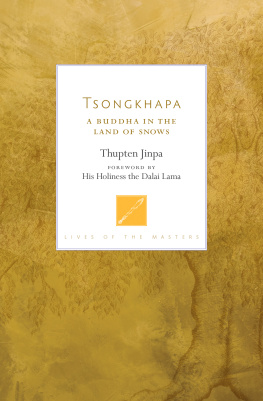
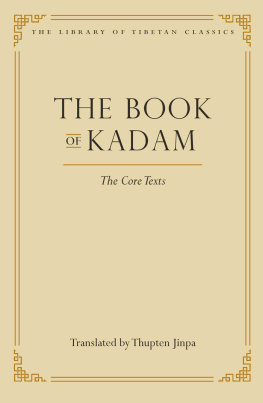
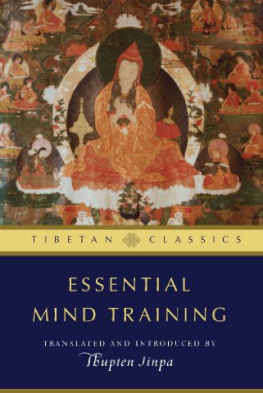
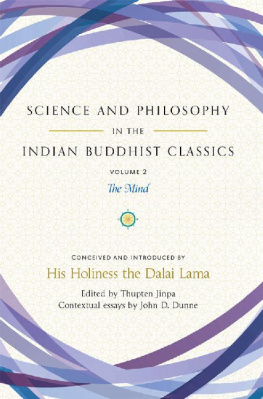
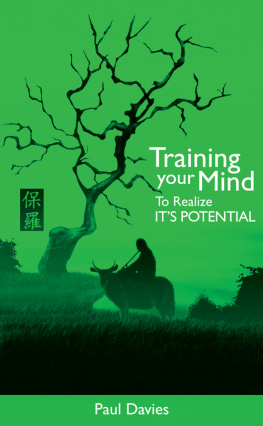
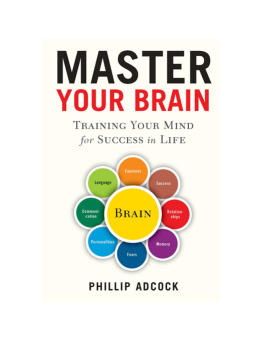
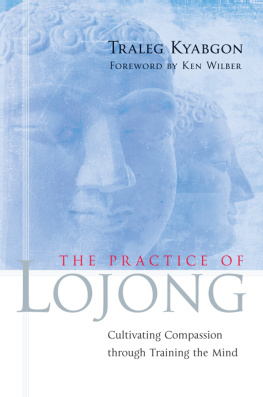
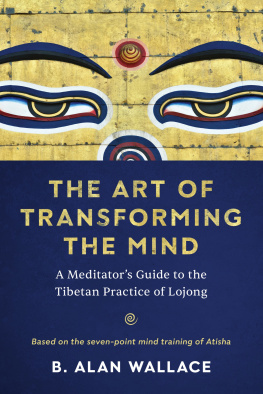

![Dalaï Lama XIV. - An introduction to Buddhism: [teachings on the Four noble truths, The eight verses on training the mind and the Lamp for the path to enlightenment]](/uploads/posts/book/207935/thumbs/dala-lama-xiv-an-introduction-to-buddhism.jpg)
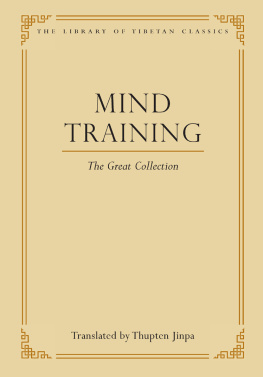

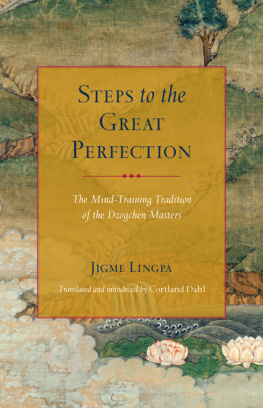




 This book was produced with environmental mindfulness. We have elected to print this title on 30% PCW recycled paper. As a result, we have saved the following resources: 25 trees, 10 million BTUs of energy, 2,496 lbs. of greenhouse gases, 11,258 gallons of water, and 713 lbs. of solid waste. For more information, please visit our website, www.wisdompubs.org. This paper is also FSC certified. For more information, please visit www.fscus.org.
This book was produced with environmental mindfulness. We have elected to print this title on 30% PCW recycled paper. As a result, we have saved the following resources: 25 trees, 10 million BTUs of energy, 2,496 lbs. of greenhouse gases, 11,258 gallons of water, and 713 lbs. of solid waste. For more information, please visit our website, www.wisdompubs.org. This paper is also FSC certified. For more information, please visit www.fscus.org.